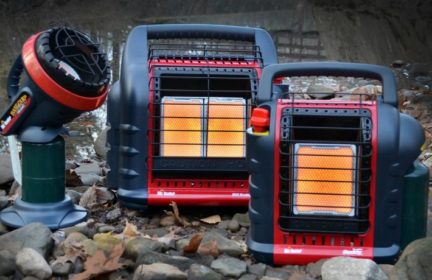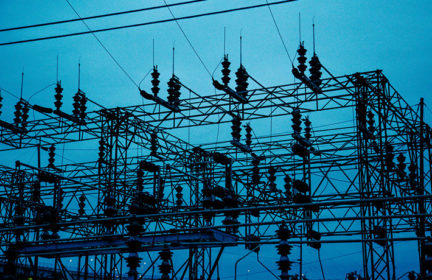Heating your home (without electricity)
We’re heading into winter. If something goes down and the power gets shut off, staying warm is suuuuuuper important.
I’m a renter, and our home has central air (electrical) and no fireplace. Anyone have experience to share with the rest of us?
In the beginner’s checklist is a link to a few propane-fueled heaters; I would love to hear about those, in addition to any other ideas.
-
Comments (8)
-
Bradical - October 27, 2020
Conserving heat will be very important. Save up those amazon bubble mailers, tin foil, cardboard and you can make some pretty thick insulation that you can place into window frames. I would pad up all windows that are not south facing.
During the morning open your blinds to east and south facing windows to allow as much sun warmth to come in as possible. In the afternoon close those east blinds and open the west blinds. When the sun starts to set, close up everything and maybe pad up windows with what I listed above or extra blankets.
Worst case scenario if you don’t have any ways to produce heat, such as a heater, have your family sleep in the same room to produce as much body heat as possible. If it was really bad, you can set up a tent in your living room, put on the rain fly, and throw blankets on and around the tent to create a warm little insulated room.
Wear warm clothes throughout the day, maybe even a coat, shoes, and gloves.
As for ways to produce heat, besides propane there are electical space heaters,(haha the pics on amazon look like they are flame throwers) you can even turn on the oven and crack the oven door open. But more of what I think you are looking for, there are Kerosene space heaters. That kerosene can also be used in kerosene ovens and kerosene lanterns.
Kerosene is a very popular fuel source in many countries, but not used as much here in the US. You will need some ventilation however. Also make sure you have a good carbon monoxide detector.
-
Jesse Smith - October 28, 2020
What’s your climate like? Where are the ducts and air handler located?
I’ve done a fair bit of carbon monoxide diagnostic work in houses, so it could be that I’m overreacting. But there’s basically no way that I would run unvented fossil fuel appliances indoors. CO monitors are great, and everyone should have them. However, 1) the best way to avoid CO poisoning is to vent fossil fuel appliances. 2) the algorithms used in the alarm systems are partly there to protect against nuisance alarms. As a result, the alarms aren’t allowed to be tripped until (imo) moderately high levels of CO have been sustained for a long time (1-4 hours @ 70ppm, 30 days @ 30ppm). The latter also causes widespread confusion about alarms tripping seemingly out of sync with the exposure, which often leads to people disconnecting the alarm from its power source. Some of the digital ones will start reading accurately at lower levels (but still aren’t allowed to trip alarm at this level), so you might consider getting this style of alarm.
-
doommunky - November 3, 2020
A great thing for us all to be aware of, thank you.
-
matthew.Contributor - November 3, 2020
My research has pointed to the same thing that Jesse Smith warns of. Home CO monitors, from what I’ve read, typically won’t register a measurement that is under 20ppms. So even if your monitor appears to suggest that there is no CO at all, there very well may be up to 19ppms present, which is not good for a prolonged length of time.
Carbon monoxide builds up in your blood over time, it’s not something you just flush out once the exposure ends, so be extra careful.
-
-
Sorcer Gamble - October 28, 2020
I’ve got a MrHeater Portable Buddy… and the conversion line allowing you to hook it up to your outdoor bbq grill size propane tank. Got two of those full but wouldn’t mind having 1 or 2 more for an extended power outage mid-winter. Dress in layers. Also nice would be something like a Inergy kodiak solar generator… that you could charge off sunshine during the day and use to run an electric blanket during the night… still on my wish list.
-
PrepPrepPrep - November 1, 2020
If you use the heating element of your oven on a regular basis, you can expect it to burn out. at some point, maybe sooner than you were expecting.
-
más picante - November 2, 2020
Is the heat electric? I don’t mean does it have an electrical component, I mean, what’s the fuel source? If it’s gas or oil, the system doesn’t really use much power and you can probably run it on a small generator. It’s just the central air that uses a ton of power and would probably require a whole-house generator.
After Sandy we ran the oil-fired heat and hot water heater on a Honda 2k watt generator without any issues. My new house has a gas furnace and the fan will easily run on the same generator.
-
doommunky - November 3, 2020
Good thinking! This is a good option for anyone who has a fueled central air system.
(My house heater is all-electric, so we’d need a big generator, sounds like)
-
-
- Mylar Bags - 2 days ago
- Shot Show 2026 recap - 1 month ago
- News for the Week 2026-1-12 - 2 months ago
- News for the Week 2026-01-05 - 2 months ago
- News for the Week 2025-12-29 - 2 months ago
This forum is heavily moderated to keep things valuable to as many people as possible. Full community policies are here. The basics:
- 1. Be nice to each other.
- 2. Stay focused on prepping.
- 3. Avoid politics, religion, and other arguments.
- 4. No unfounded conspiracies, fake news, etc.
- 5. Debate ideas, not people.

